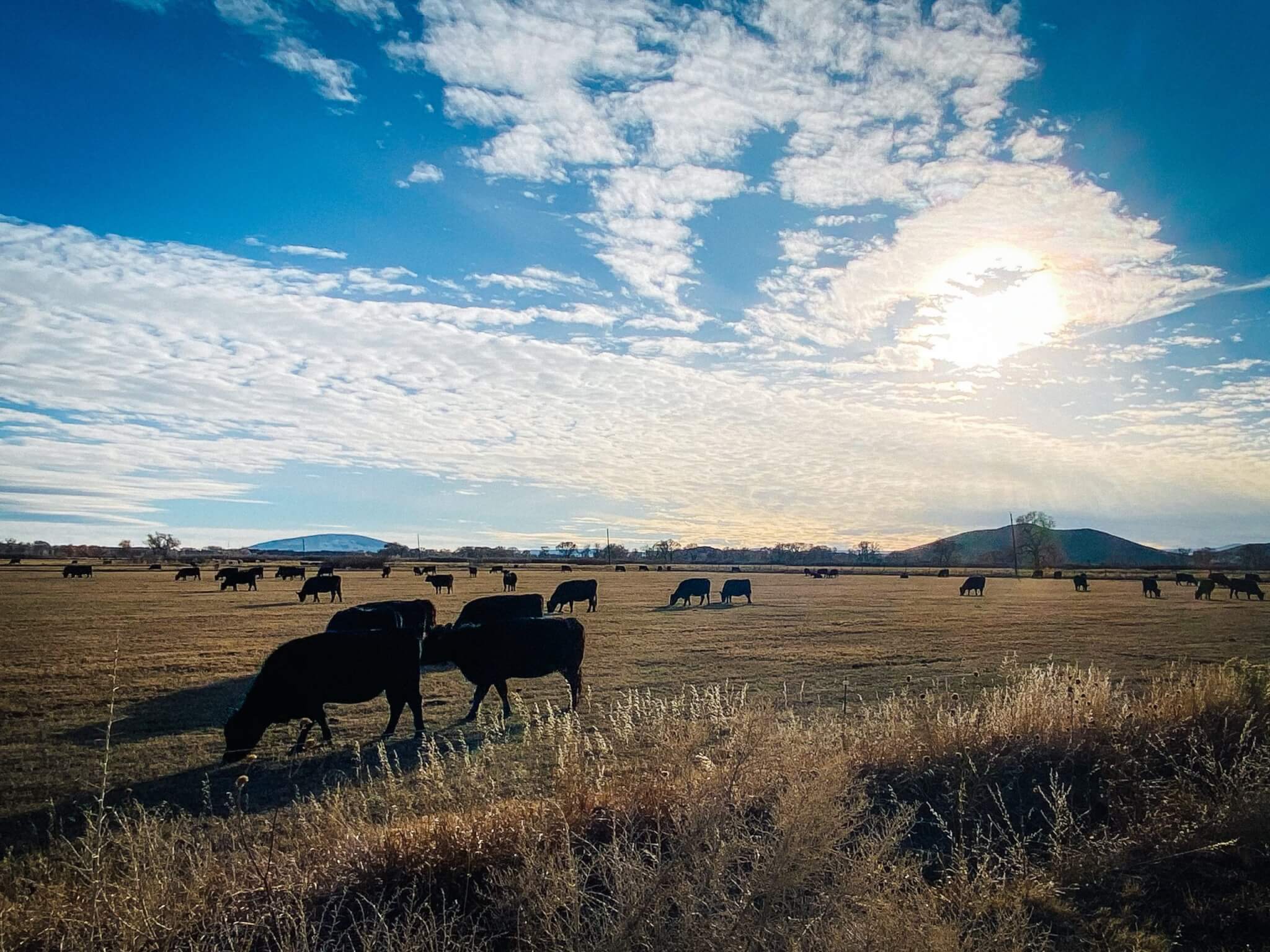Listening to the Network for Healthy Rivers in Agricultural Landscapes
Farms, ranches, and rangelands occupy 44% of US land, making the farmers and ranchers who work these lands and use this water to irrigate them vital voices in any water-related conversations – both because of their water usage and their vast working knowledge of local lands and waterways.
In recent years we’ve heard from our network members that this is a gap; water protectors across the country want skills to engage farmers and ranchers. There is a deep desire to build trust and foster innovation with the goal of improving the health of rivers within working lands and engaging farmers and ranchers in projects and programs related to healthy rivers and clean water.
For River Network, this presented an opportunity, one we eagerly embraced in 2018 when developing our current Strategic Plan, identifying Healthy Rivers in Agricultural Landscapes as a key issue area. Maybe you’ve seen “Water and Agriculture” as a River Rally workshop track or noticed it featured on our website, but what has this work actually looked like to date? In short, a lot of listening, learning, and ground-truthing of best practices across Colorado.
In 2020 we launched a new project to help us understand how our network currently works with farmers, ranchers, and irrigators to promote clean water and healthy rivers. This helped us identify existing needs and challenges that our network faces in this area of work. Here’s what we found:
- Water protectors desire more education about the work already being done at the intersection of healthy rivers and agricultural landscapes.
- Our network needs help connecting with, disseminating data to, and building trust with agricultural producers.
- There’s a need for more funding to support staff working within agricultural communities, for infrastructure improvement projects (i.e. irrigation modernization), and to monitor projects and maintain relationships over time.
- Network members have difficulties getting a seat at the table for federal and state policymaking and need support in advocating on issues related to agriculture at the federal and state levels.
The second phase of this project, which we are embarking on this year, will build from these findings to help us define our niche and the determine the value we can bring across the network.
That’s where our Colorado work comes in. In addition to the work we do at the national level across the country, the expertise we bring to the agricultural space lies in the fact that our work here in Colorado is so place-based.
We’re working hand in hand with folks on the ground and so are able to experience first-hand the needs and challenges that others in our network face while working with landowners. Because we have these shared experiences, we’re able to pilot new approaches to address them in Colorado, ground-truthing programming that can be scaled to other regions and watersheds of the US. By early 2022 we will begin taking this to the next level: implementing our learnings and programming successes within this area in regions outside of Colorado.

One of our partner’s farms in Alamosa, CO. Photo by Mikhaela Mullins.
Working alongside agricultural partners to improve the health of rivers is a complex issue that is heavily influenced by local culture, customs, and relationships and is dependent on the region and local agriculture. The strategies members of our network use to reach desired conservation outcomes will vary not only depending on the outcomes they seek and what’s going on on the ground and in the water, but also by the strength of their relationships with local farmers, ranchers, and landowners. Nonetheless, there are also approaches and competencies that cross all geographies. For instance, learnings around how to develop effective partnerships can be shared widely across our national network.
So far, this work is going well and holds a great deal of potential that we’re excited to share in the coming months and years. We’ve been able to identify the larger, overarching needs and challenges of our network and can now begin the deep, intentional work of honing in on programming and resources to address those needs and alleviate some of the challenges described above. None of the needs or challenges that surfaced in the focus groups were particularly surprising, but it was good to hear directly from the network we serve and to learn that they’re universal challenges.
This work can’t be and isn’t being done alone. We are grateful for collaborators and partners like Onondaga Environmental Institute, Save Our Saluda, Iowa Environmental Council, Friends of the Kaw, Scappoose Bay Watershed Council, The Nature Conservancy (TNC), Trout Unlimited (TU), Western Water & Habitat Program, River Alliance of Wisconsin, and so many more who have given of their time and energy in our 2020 focus groups. We’re honored to work alongside organizations like TNC, TU, and the many others working in this space, some as part of other programs we offer, like the Environmental Water Transactions Network, and generous funders like the Walton Family Foundation and Colorado Water Conservation Board who share and support our vision.
In the coming years we envision this work will lead to a larger percentage of the members of our network working alongside their local agricultural partners to improve the health of rivers and watersheds across US working lands.
We look forward to a time when our network members are highly connected and resourced in working with farmers and ranchers, have an increased understanding of leveraging federal, state, and private funding for impact, and are confident and able to fully utilize existing policies, regulatory tools, and programs to achieve conservation outcomes for clean water in agricultural landscapes.
At our core, we are a convener and backbone, aligning the national network to share solutions and bring together all stakeholders – this project is a prime example of just that, as we build trust and lean on our decades of experience aligning diverse voices towards the same goal: clean water and healthy rivers for all.
Learn more about our work on our blog and videos.
Want to get involved in this work at the intersection of healthy rivers and ag? Contact me at mmullins@rivernetwork.org!






[…] plan defining our path forward on healthy rivers in agricultural landscapes identifies several needs and challenges that network members brought up in working with agricultural audiences, […]
[…] In July 2021 we shared what we learned from conversations with water protectors around the country to learn how they work with agriculture on river health initiatives and how we can help them. Those conversations have also informed the creation of our five-year workplan, available here, which focuses on creating connections, supporting groups to leverage agricultural funding sources and promoting policy solutions that advance equity and resilience. […]